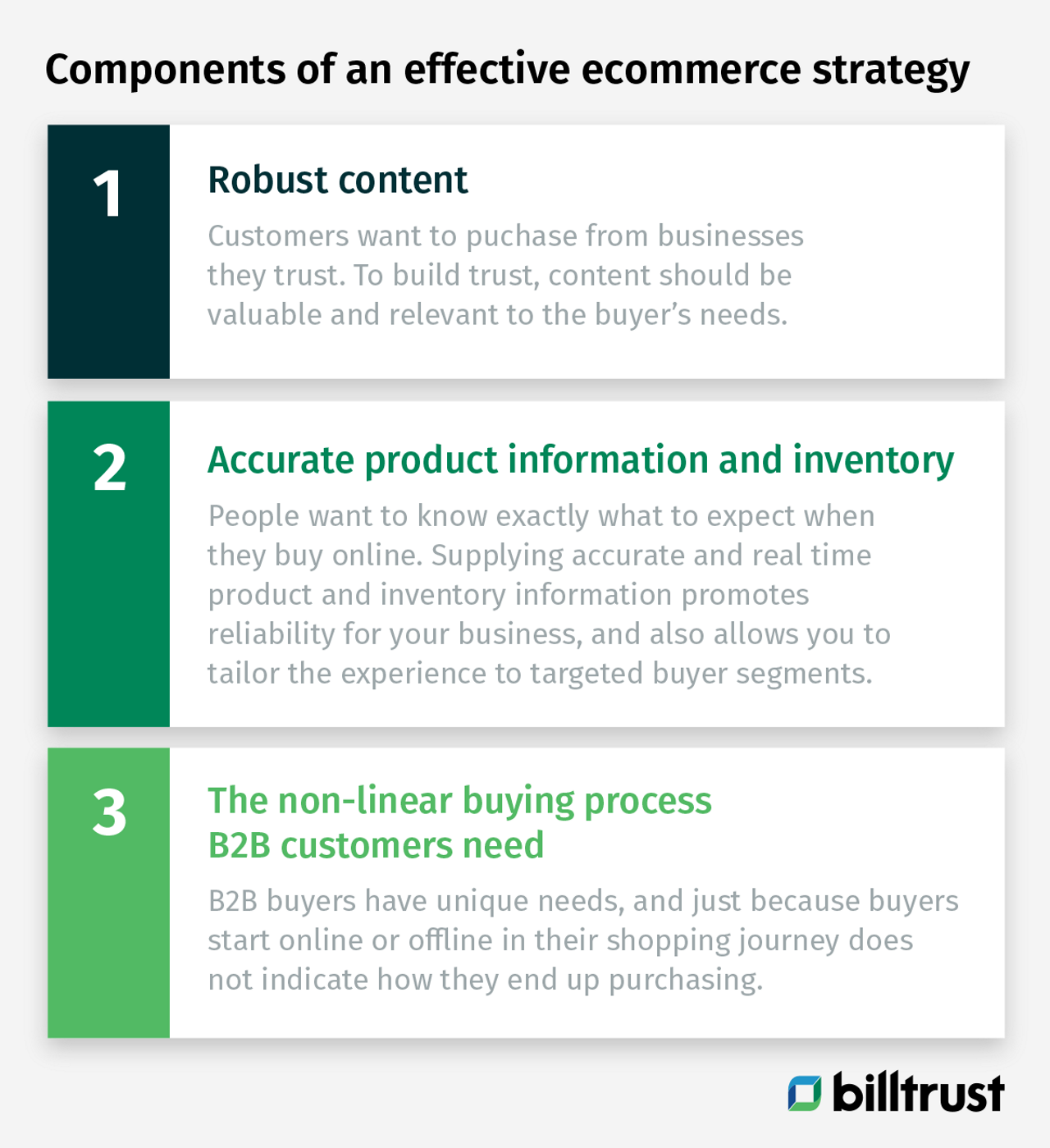Supply chain issues and B2B eCommerce
The events of the past year have created significant supply chain disruptions resulting in global bottlenecks and unprecedented shortages across industries. As such, B2B distributors have had to reimagine their operations in order to account for rising demand, unpredictable inventory and the evolving needs and expectations of their buyers.

At the forefront of these efforts has been the adoption of ecommerce strategies that have proved to be crucial in paving a path towards success in an increasingly digital world. And while the adoption of B2B ecommerce accelerated as a result of the pandemic, with supply chain issues showing no signs of going away, it’s clear that the urgency to adopt ecommerce is greater than ever.
Supply Chain Challenges’ Bottom-Line Impact
45% of companies across the globe say that COVID-19 "significantly" disrupted their supply chain, which naturally wreaked havoc across industries, including those in the B2B space. The HVAC industry, for instance, has been met with extremely high demand as historically low interest rates and stay at home orders encouraged renovations and new home purchases throughout the nation. However, with unpredictable inventory as a result of supply chain disruptions many HVAC distributors have struggled to keep up with demand and have found themselves at a disadvantage to online retailers and more digitally savvy competitors.
As a result, organizations are experiencing bottom-line and reputational repercussions. In fact, 83% of companies report suffering reputational damage as a result of global supply chain disruption, and 64% of US & European companies report revenue losses of 6 – 20% in 2020. And while organizations across the globe have done a remarkable job adapting to the initial impact of these challenges, with new variants emerging, and other factors such as climate change coming into play, all signs point to the fact that supply chain volatility will persist well into the future.
The eCommerce Solution
As the pandemic forced many businesses to shift online, savvy B2Bs followed suit, transitioning away from traditional ways of doing business that in many ways became untenable during the crisis and adopting ecommerce solutions. This allowed them to meet their buyers where they were, provided greater insight into their inventory and injected a much needed dose of predictability, visibility and control into their operations. B2B ecommerce adoption has been so rapid that according to Forrester, the U.S. B2B eCommerce market will reach $1.8 trillion by the end of 2023, outpacing B2C’s $529.7 billion. Even further, data from the Billtrust eCommerce team showed a 463% increase in total year over year web sales by the end of Q1 2021.
Naturally, buyers’ are adopting ecommerce too, with McKinsey research finding that 70% of B2B decision makers say they are open to making new, fully self-serve or remote purchases in excess of $50,000, and 27% would spend more than $500,000. This open arms embrace of ecommerce from buyers is not surprising as these digital capabilities are empowering them with the ability to make smarter and quicker purchase decisions with things like greater inventory visibility, personalized recommendations, and more efficient customer service.
And as we navigate through an increasingly unpredictable world, the deployment of a successful ecommerce strategy will continue to be critical for buyers and distributors alike.
What Does an Effective eCommerce Strategy Look Like?
At a high level, solutions like Billtrust eCommerce enable suppliers to overcome challenges by allowing them to scale quickly to meet customer needs whenever and wherever they need it, despite the volatility surrounding inventory. And while there are many ways to deploy ecommerce capabilities, an effective strategy prioritizes:

Robust Content
Customers want to purchase from businesses they trust. To build trust, content should be valuable and relevant to the buyer’s needs. A robust content framework helps with SEO and provides a platform to deliver an important "value add" to buyers whether they’re looking for education, product information or additional service details. An intelligent search function capability also helps enhance the user’s experience by offering the convenient ability to search and find what they need easily and quickly. Whether they’re looking for a product spec sheet or finding an acceptable alternative if the original item is out of stock this ability makes you the primary resource for information, which keeps buyers coming back and prevents them from finding a better online resource.
Accurate Product Information and Inventory
People want to know exactly what to expect when they buy online. Supplying accurate and real time product and inventory information promotes reliability for your business, and also allows you to tailor the experience to targeted buyer segments. This AI-powered ability ensures that the correct groups of customers are getting the information most relevant to them helps strengthen trust with customers while also helping the distributor understand how shifting supply chain disruptions are affecting their inventory and sales. All of which enables the visibility and control necessary to mitigate issues before they become a bigger reputational problem.
The non-linear buying process B2B customers need
B2B buyers have unique needs, and just because buyers start online or offline in their shopping journey does not indicate how they end up purchasing. eCommerce solutions need to be flexible with all ways to "checkout" including online bill pay, invoicing, standard check out, punch out, etc., while also being able to provide a seamless experience through their journey, whether they start online, switch to a mobile app, chat or call in to complete the order.
This prioritization has clear bottom line benefits, but the reputational lift that comes with adopting an effective ecommerce strategy and becoming a trusted source for buyers in an increasingly competitive market is priceless.
Join Billtrust for our B2B ecommerce webinar
Want to learn more about how ecommerce solutions can help your business? Join us for our webinar, Surviving Post-Pandemic: The Urgency in Adopting B2B eCommerce, to discover even more pillars of a winning ecommerce strategy to stay ahead today and every day.

